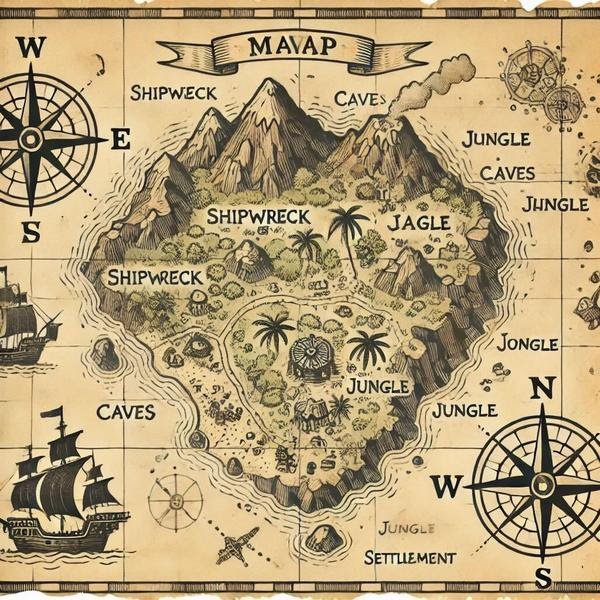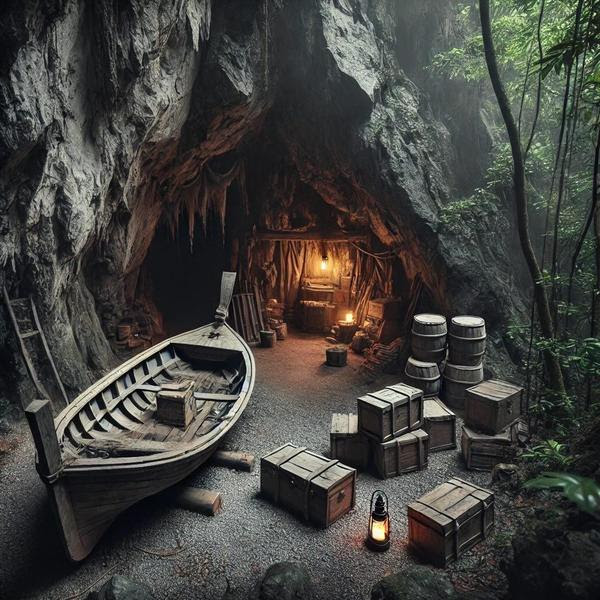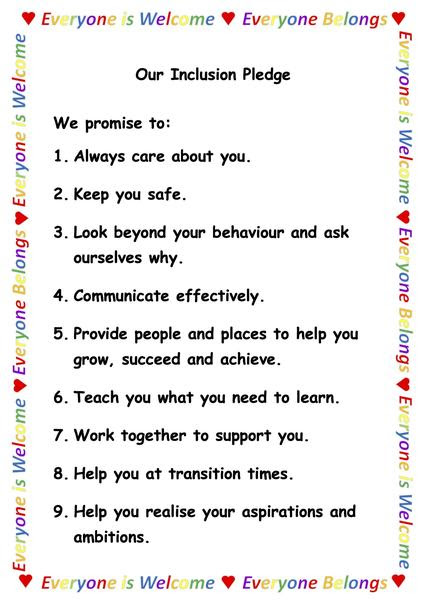This block of online philosophy classes at p4he,org Jason has been doing philosophy-in-role with each class becoming a group of castaways on a standard-issue tropical island cut off from the outside world. Each group of 9-12s or teens had their own iteration of the world, with different events and decisions to make.
A Ready-Made “Create Your Own Community” Resource
There’s a ready-made approach to this available as one of the free resources on P4C.com, written by Peter Worley. Head to “Our Resources”, then “Free Samples” and click on “Republic Island”. His version starts with making a map of the island (see last week’s bulletin for thoughts on maps) before exploring issues of survival, community, republic and environment.
Philosophy as a Role-Playing Game
You can take things one stage further by turning your philosophy sessions into a role-playing game. As we find in our online Dungeons and Dragons classes at P4HE, these games are tremendously compelling and great for imagination and collaboration.
Jason Howard in Adventures in Reasoning has elaborated a version that, like Dungeons and Dragons, has each player creates their own character. That’s not practical for class-sized groups, although it would make for a great extracurricular club. But you don’t need an elaborate game system and rules for a good philosophy-in-role adventure – just a good story, interesting choices and some gnarly questions.
The Game World
You start by establishing a Game World in which the characters played by the participants will exist. As well as a setting for their adventure, it needs to give them an overarching purpose that drives the whole series of sessions – survive, complete a quest, discover some hidden information etc.

In this case, it’s a tropical island but they could be any situation – explorers, a village on the edge of a volcano, aliens visiting earth… They don’t need to create individual characters for themselves (though that’s fun). They can just be more or less themselves but in a different situation – adults in 1799, as in Peter’s Republic Island, or teenagers who have survived a zombie apocalypse, or whatever.
An Example Session
You create the story together, with the players responding to the events you create as the Philosophy Master (thanks, Jason Howard, for that phrase). Here’s an example, improvised at the time but recalled here:
“While you’re all busy fishing, gathering fruit, repairing your shelters as normal, one of you comes running back from the north end of the beach and calls you all over. There are footsteps in the sand, coming towards your camp. They’re close together – until they turn the corner of the beach where you shelters come into view. Then they turn away, and get further apart.”
They will quickly work out that someone else is on the island, who has seen their camp and run away.
“Following the footsteps, you find a quiet bay you missed when you socuted the island, hidden by thick forest. In it, you see an old wreck of a boat pulled up to half cover the entrance to a cave. The footsteps lead there. You post someone to keep watch. After several hours, an old man emerges from the cave, with a long beard. He looks about nervously, and then disappears into the forest.”

It turns out that his cave holds a hoard of useful items, most of which he hardly seems to be using, that could make their lives easier on the island. If they get talking to him, he wants to live alone and sees no reason to share any of the things he has found.
Is the stuff in the cave his property? Is it OK to force him to share it? They might argue that their precarious situation changes things, or that if they make sure he ends up better off, it’s fair.
When does someone have to share, and when can they keep it all for themselves? When does taking something from someone reduce injustice, and when does it increase it?
They might make comparisons with taxes, commandeering resources in time of war, or very unequal societies including our own.
The Elements of A Session
Every session in a philosophical RPG contains these elements, which you can spot in being woven into what I said in the example above.
Game Encounter – What happens in the story.
Game Decision – The practical decision of which course to pursue, within the game
Philosophy Question – The bigger question it raises in both the story and our world.
Philosophy Contexts – Where that question arises in reality
The discussion pivots repeatedly between Game World and Our World, exploring the Philosophical Question as a guide to making Game Decisions. Your initial inspiration for a session can come from any of these, and you can elaborate from there.
Further Examples
Game Encounter – A new group arrive in a canoe, outcasts from another island.
Game Decision – Let them settle or defend the island against them.
Philosophical Questions – What turns something into property?
Philosophy Contexts – Colonization especially of USA
Game Encounter – A new group arrive in a canoe, outcasts from another island.
Game Decision – Let them settle or defend the island against them.
Philosophical Questions – What turns something into property?
Philosophy Contexts – Colonization especially of USA
Of course, a story can take on life of its own, opening up new questions. In various iterations of the game the emerging encounters led to discussion of just war theory, multiculturalism, conflict resolution, punishment, trust… Sometimes you might plan the starting point for a session in advance, but you can also find that the actions of the characters in the story create new opportunities.
Bring a Philosophy Island/Planet/Zeppmarine to Your School
If you’d like me to run a workshop in your school modelling this practice with a group of up to 30 students, such as a more able group, drop us an email. It works well with mixed ability groups but like D&D it is absolute catnip for students who are a bit beyond their years. The ideal is to have it as something people can opt into for a small charge, with that charge waived for anyone on Pupil Premium or otherwise disadvantaged – “identification through provision” is usually the best way to go. If you can get to watch the whole day yourself, it will be Rolls-Royce CPD for you.
What’s on in the Philosoverse?
Tom has been back to St Christina’s and Whitgift Schools for repeat visits to do pupil workshops and staff training.
Jason ran a new style of day at Caterham Prep School, running the very same session five times with different classes. This allows the particular strengths and growth areas for each class to be identified, with tailored suggestions for each class. It’s a great way of getting a readout on how a school is doing on oracy, thinking skills and progress between year groups – in this case, extremely well! It was also a chance to see their Debate Planet lunchtime club in operation – more on this next week!
Then to Ely College for some workshops and a lively staff twilight with 80 teachers, focused on Help Me Find My Voice, and on Thursday, a Big Think Philosophy Assembly with around 500 pupils from various schools in the UK and abroad. Next one is March 6th, 9.00 a.m. Free and good fun, sign-up details next week.
Best wishes,
Jason
P.S. One of the most challenging things for our castaways has been trying to formulate the rules they would pledge to follow to create a successful community. A rather good real-world example of a pledge I came across recently is Brian Mitchell’s inclusion pledge for the Dagenham local authority. It’s a very good piece of work that deserves a wider audience. The child-friendly version is below. What I particularly respect about the detail of it is how it encourages schools to question when they might be part of the problem and not just part of the solution for some young people.
Best wishes,
Tom and Jason
